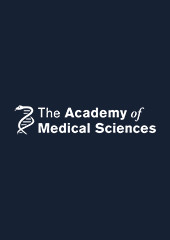The Academy of Medical Sciences has published its seventh annual diversity report, examining data collected across six key work areas of Fellowship, governance, policy, programmes and grants between 2020 and 2024.
The independent report, analysed and written by external consultants from Select Statistics and Inclusive Recruiting, demonstrates progress in several areas while highlighting continued challenges in diversifying the Fellowship.
Key report findings include:
- Fellowship diversity – While gender diversity shows modest improvement (female representation increased from 20% to 22%), the Fellowship remains 76% male. However, newly elected Fellows show a more balanced gender split (56% male and 44% female in 2024, which is an improvement from 62% male in 2020). This progress towards gender balance is also reflected in the Academy’s events programming, with data showing an even split of male and female attendees at the flagship International Health Lectures, demonstrating that gender parity has been achieved in some key activities.
- Ethnic diversity progress – Among Council members who provided data, a quarter (25%) are from Black, Asian and/or Minority Ethnic backgrounds, a significant improvement from 2019 when there was no representation on Council and only 6% in 2020.
- Staff diversity – The Academy’s staff shows improved ethnic diversity, with a fifth (20%) identifying as Black, Asian and/or Minority Ethnic, up from 12% in 2020, with the majority (15%) being South Asian.
- Programmes and grants – The Future Leaders in Innovation, Enterprise and Research (FLIER) programme has shown gradual improvement in ethnic diversity, with 37% of participants in FLIER’s third cohort identifying as Black, Asian and/or Minority Ethnic, compared to just 6% in FLIER’s first cohort. The Academy’s SUSTAIN - women in research – programme has also seen notable progress in disability inclusion, with the proportion of disabled participants rising significantly from 4% in earlier rounds (2-7) to 15% in the more recent cohorts (rounds 8-10).
- Data collection – Significant improvements in data quality and coverage have been achieved, with many categories moving from poor collection (less than 50%) to good or very good collection (over 75%).
New social mobility data for this year reveals that 44% of Fellows are the first in their family to have attended university. However, of those Fellows who provided information about their schooling, just over a third (36%) attended independent or fee-paying schools – significantly higher than the current national average of 14% of secondary school pupils. This highlights the ongoing challenge of widening participation in medical sciences at the highest levels.
Professor David Adams FMedSci, Registrar, the Academy of Medical Sciences, said: “Bringing together people with different backgrounds and experiences directly improves scientific output and the ability to address complex health challenges. This comprehensive report provides crucial data to guide the Academy’s ongoing equity, diversity and inclusion (EDI) strategy, to create a research community where diversity in thought, expertise and backgrounds are valued as essential assets in tackling pressing health issues. When our Fellowship and activities reflect the society we serve, we’re better positioned to improve health outcomes for all.”
Professor Franklin Aigbirhio FMedSci, Council EDI Champion, Academy of Medical Sciences, said: “This report yet again delivers a clear message that change must continue and start from within. We still have a long way to go. In an environment where some are rolling back their EDI commitments, the report highlights the importance of collecting and using data to ensure evidence-based policies drive equity and diversity in medical and health science.”
Significant improvements have been made in the Academy’s data collection, with expanded metrics now including gender, race, disability (including mental health), neurodiversity, gender identity, sexual orientation, and for some areas, age, religion and socioeconomic background. For the first time, the report also incorporates benchmarking and qualitative feedback through stakeholder interviews, providing valuable context on enablers and barriers to EDI.
The report puts forward eight recommendations, agreed by the Academy Council, including emphasising Fellowship diversification as a priority, continuing robust data collection with particular focus on LGBTQ+ data where reporting remains low, shifting from data capture to action through clearer milestone measures and dashboards.
The full report is available on the Academy’s website. The Academy’s Equity, Diversity and Inclusion programme is funded by the UK Government’s Department for Science, Innovation and Technology.
